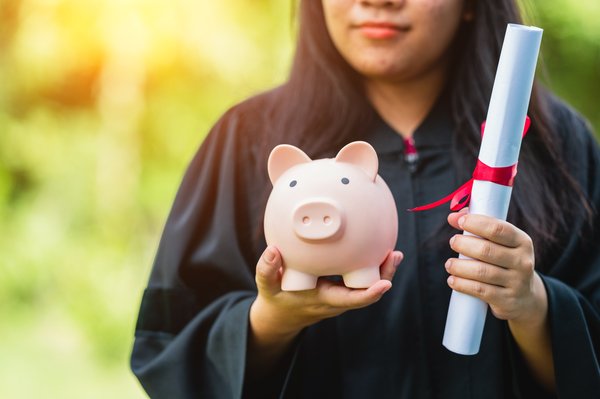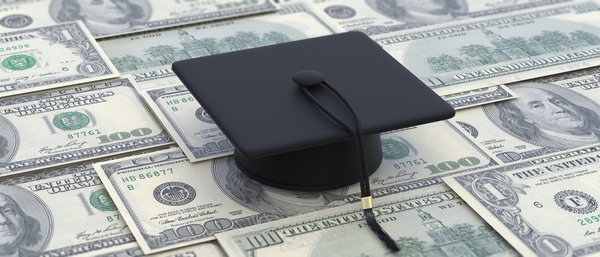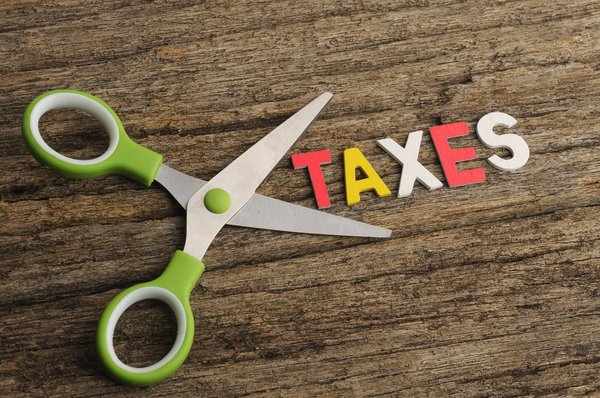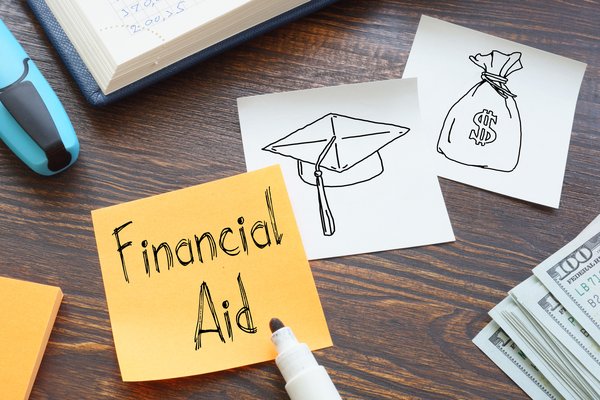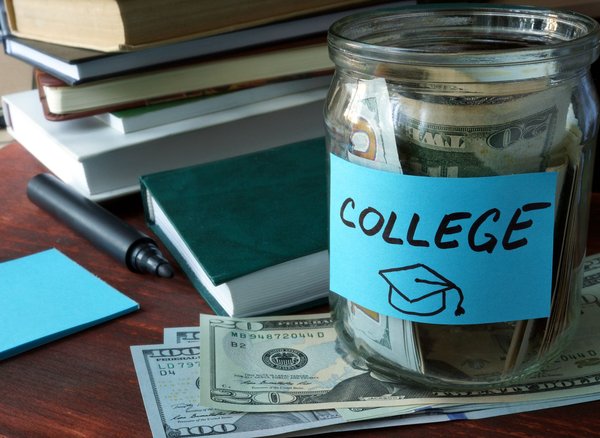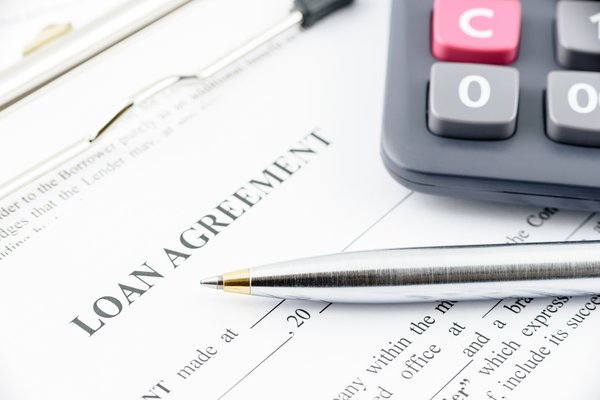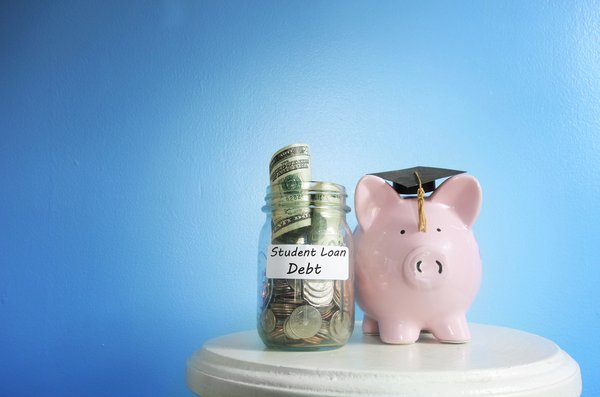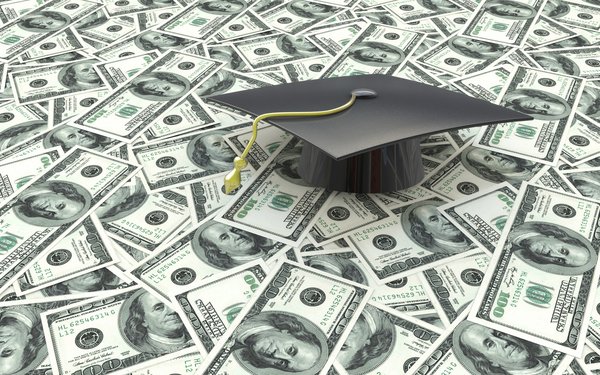Student loan interest rates determine how much you pay to borrow money for school. They vary based on several factors, including whether you're getting a loan for undergraduate or graduate studies, if you want a fixed or variable interest rate, and your credit score (or your co-signer's).
It's normally best to exhaust federal student loans first because they tend to have lower interest rates and better terms overall. In this guide, we'll cover the current federal and private student loan interest rates, important factors to consider when getting student loans, and how to reduce your interest rate.
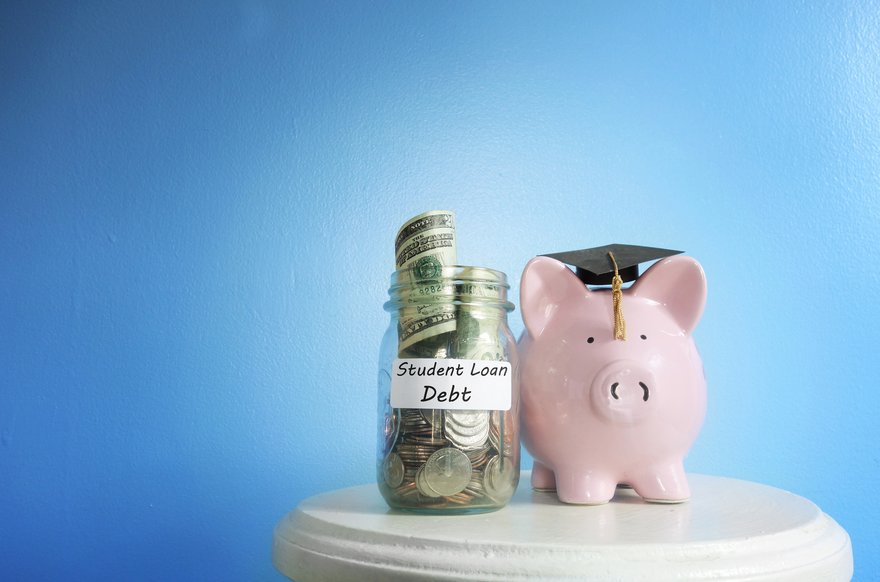
Federal student loan interest rates
Federal student loan interest rates
Here are the interest rates for federal student loans disbursed on or after July 1, 2023, and before July 1, 2024.
| Loan type | Borrower type | Fixed interest rate |
|---|---|---|
| Direct Subsidized Loans and Direct Unsubsidized Loans | Undergraduate | 5.50% |
| Direct Unsubsidized Loans | Graduate or Professional | 7.05% |
| Direct PLUS Loans | Parents and Graduate or Professional Students | 8.05% |
For federal student loans disbursed before July 1, 2023, you can find the interest rate in your student loan contract.
Private student loan interest rates
Private student loan interest rates
Here are the interest rates for student loans from the most popular private lenders. These rates include automatic payment discounts when available.
| Lender | Undergraduate student loan rates | Graduate student loan rates | Student loan refinance rates |
|---|---|---|---|
| Sallie Mae | 4.50%-15.49% (fixed), 6.37%-16.70% (variable) | 4.99%-14.48% (fixed), 6.87%-16.47% (variable) | N/A |
| College Ave | 4.41%-16.99% (fixed), 5.49%-16.99% (variable) | 4.41%-14.49% (fixed), 5.49%-14.49% (variable) | 6.99%-11.99% (fixed and variable) |
| SoFi | 4.44%-14.70% (fixed), 5.99%-13.97% (variable) | 4.99%-14.48% (fixed), 5.99%-13.97% (variable) | 5.24%-9.99% (fixed), 6.24%-9.99% (variable) |
| Discover Student Loans | 4.49%-14.99% (fixed), 6.37%-16.62% (variable) | 5.24%-14.59% (fixed), 6.37%-16.37% (variable) | 5.99%-9.99% (fixed), 7.37%-11.37% (variable) |
| Ascent Funding | 4.48%-15.66% (fixed), 6.03%-15.94% (variable) | 5.48%-15.66% (fixed), 7.05%-15.94% (variable) | N/A |
| Citizens Banks | 4.43%-12.57% (fixed), 5.80%-13.95% (variable) | 4.99%-11.42% (fixed), 6.27%-12.99% (variable) | 6.79%-10.99% (fixed), 7.05%-12.40% (variable) |
Fixed vs. variable rates
Fixed vs. variable rates
As you've seen, student loans can have either fixed or variable interest rates. The difference is that a fixed-rate student loan will have the same rate for the life of the loan. A variable-rate student loan will have an interest rate that may fluctuate based on the index for the loan's rate.
For example, if you get a student loan with a fixed rate of 5.5%, that rate won't change. If you get a student loan with a variable rate of 5.5%, it could later increase to 6.5%, decrease to 4.5%, and so on.
Fixed-rate student loans are safer because they're predictable. You know how much you need to pay every month, and you don't need to worry about the interest rate rising and doing a number on your budget. A variable rate could be worth considering if you can get a lower rate this way and if you either plan to pay off the loan quickly or don't mind refinancing later.
How it works
How student loan interest rates work
A student loan's interest rate is the amount the lender charges to the borrower every year. It's charged as a percentage of the loan principal, which is the amount borrowed. For example, if you borrow $30,000 at a 5% interest rate, then the interest charges would be $1,500 per year.
Loan rates are normally expressed using the annual percentage rate (APR), which is a little different than the interest rate. The APR is the full annual cost of the student loan, including interest and all other fees, such as origination fees, when getting the loan.
Unsubsidized Student Loans
The way that student loan rates are set is different for federal and private loans:
- Congress determines the interest rates on federal student loans.
- The lenders determine their own interest rates for private student loans.
The date that interest starts and the loan's repayment requirements also depend on the type of loan:
- With federal subsidized student loans, the government covers interest charges while you're in school at least half-time, during your six-month grace period after leaving school, and while your loans are in deferment. These loans are available to undergraduate students with significant financial needs.
- With federal unsubsidized student loans, interest charges start accruing immediately when the loan is disbursed. Payments aren't required while the student is in school or while the loan is in deferment or forbearance.
- With private student loans, it depends on the lender. Interest charges typically start accruing immediately when the loan is disbursed. Some lenders will let you postpone your loan payments until after graduation.
Subsidized Student Loans
How to reduce your rate
How to reduce your student loan interest rate
The interest charges on student loans are one of the reasons they can be so difficult to pay back. On the bright side, if you're able to trim down your loan's interest rate, you can save quite a bit of money and pay off your loan more quickly. And with large loans like student loans, even shaving a small amount off the interest rate can help.
Refinancing
Here are the best ways to reduce your student loan interest rate:
- Refinance your student loans. You can only refinance through private lenders. If there are private student loans available with lower interest rates than what you're currently paying, it's well worth seeing if you can refinance.
- Set up automatic payments. One of the simplest ways to get a better rate on your student loans is to sign up for automatic payments from your bank account. You can get a 0.25% interest rate discount with all federal student loans and most private lenders.
- Check for other discount opportunities with private lenders. Many private lenders offer other types of discounts in addition to automatic payment discounts. For example, a lender may offer a loyalty discount if you have another account, such as a bank account, with it. There are also lenders that offer interest rate discounts if you graduate within a certain time.
If you're planning to apply for private student loans or refinance your student loans, your credit score is extremely important. It's one of the main factors that the lender will use to determine your loan's interest rate. Try to improve your credit score as much as possible before applying unless you plan to apply with a co-signer. If so, it's your co-signer's credit score that will matter most.
Related investing topics
The bottom line
Student loans tend to have fairly low interest rates compared to other types of loans, except for mortgages. They're still not cheap, though, especially because of the large amounts that many students need to borrow. And student loan interest rates change from year to year. Fortunately, there are things you can do at any stage of the borrowing process to get the best deal.
For those who are getting student loans for the first time, starting with federal loans is recommended. If necessary, private loans can make up the gap of what federal loans don't cover.
If you've already taken out student loans, the best thing you can do is start making payments as soon as possible. Doing this while you're in school will leave you with less to pay back once you graduate, freeing up more money so you can start investing and building wealth. And if your student loan interest rates are higher than you'd like, see if refinancing them is a viable option.









